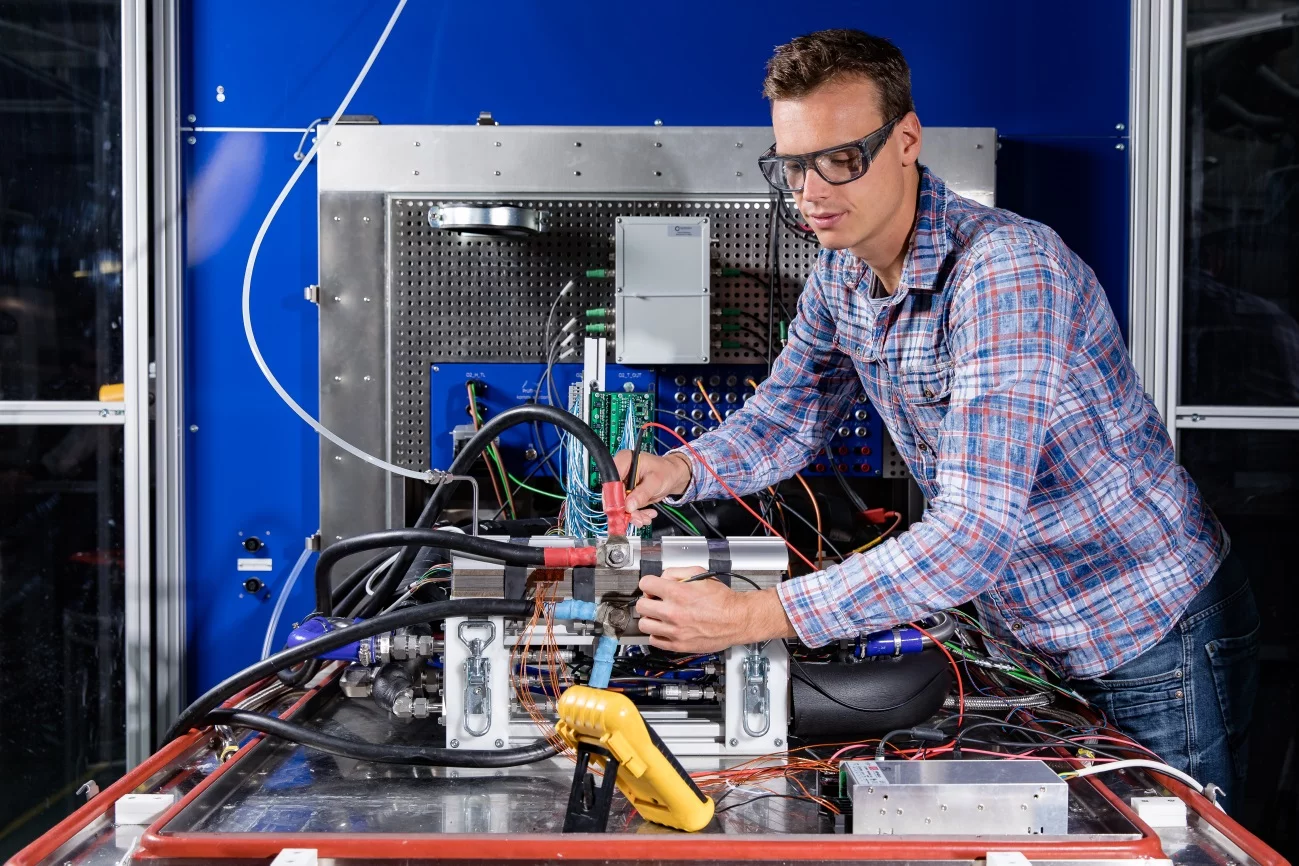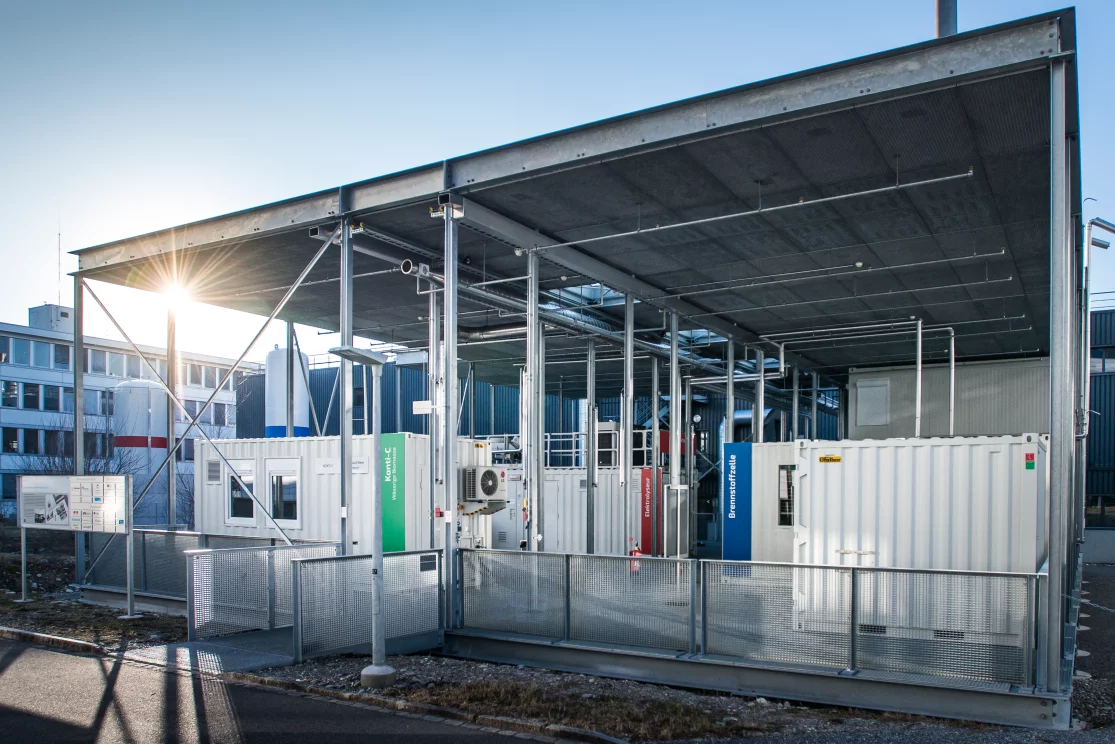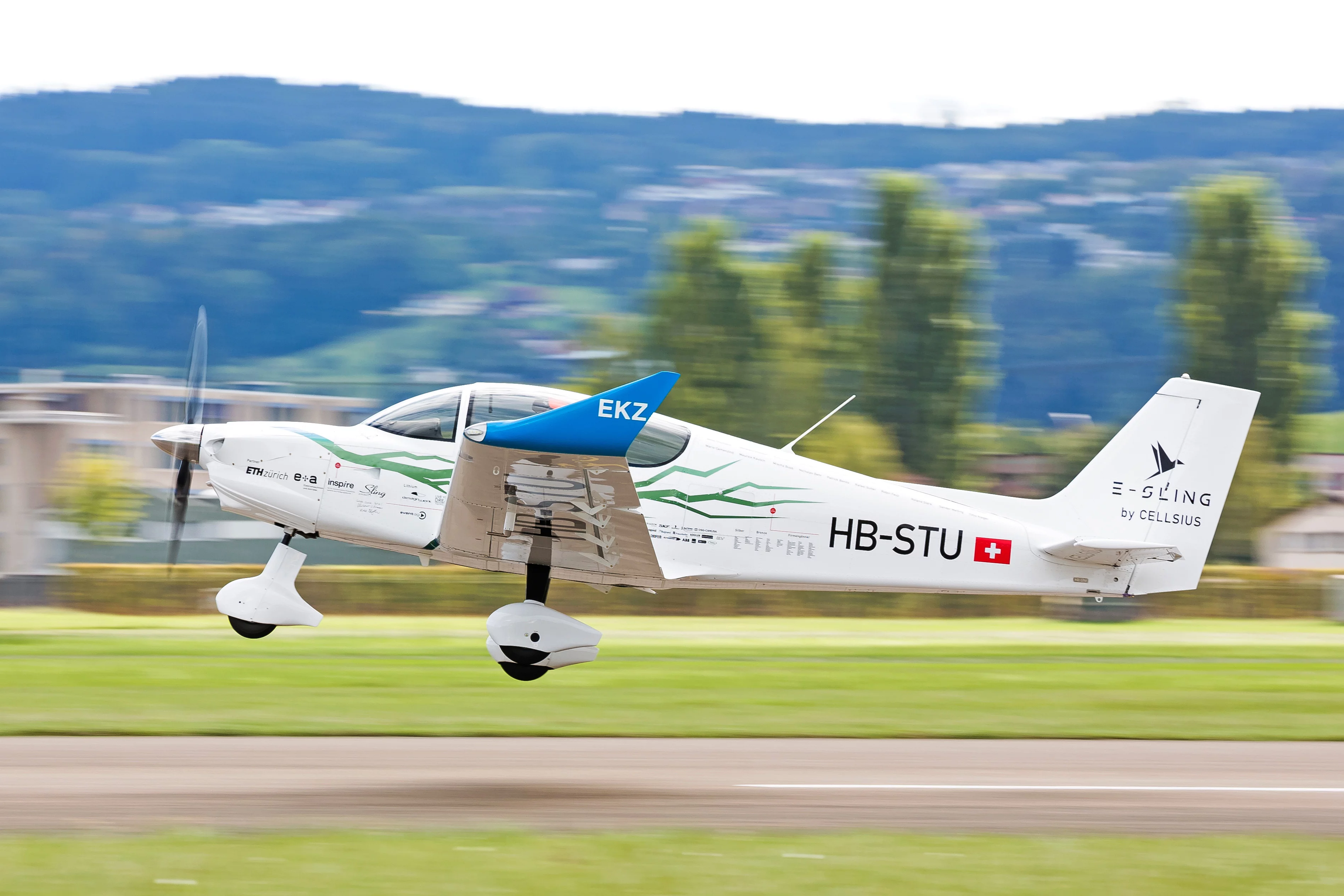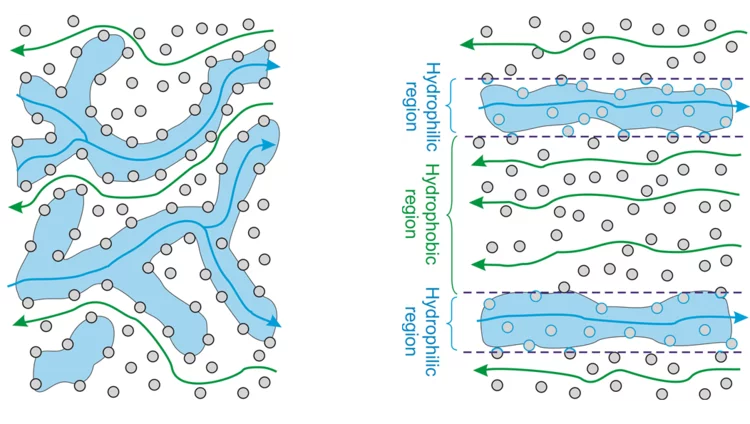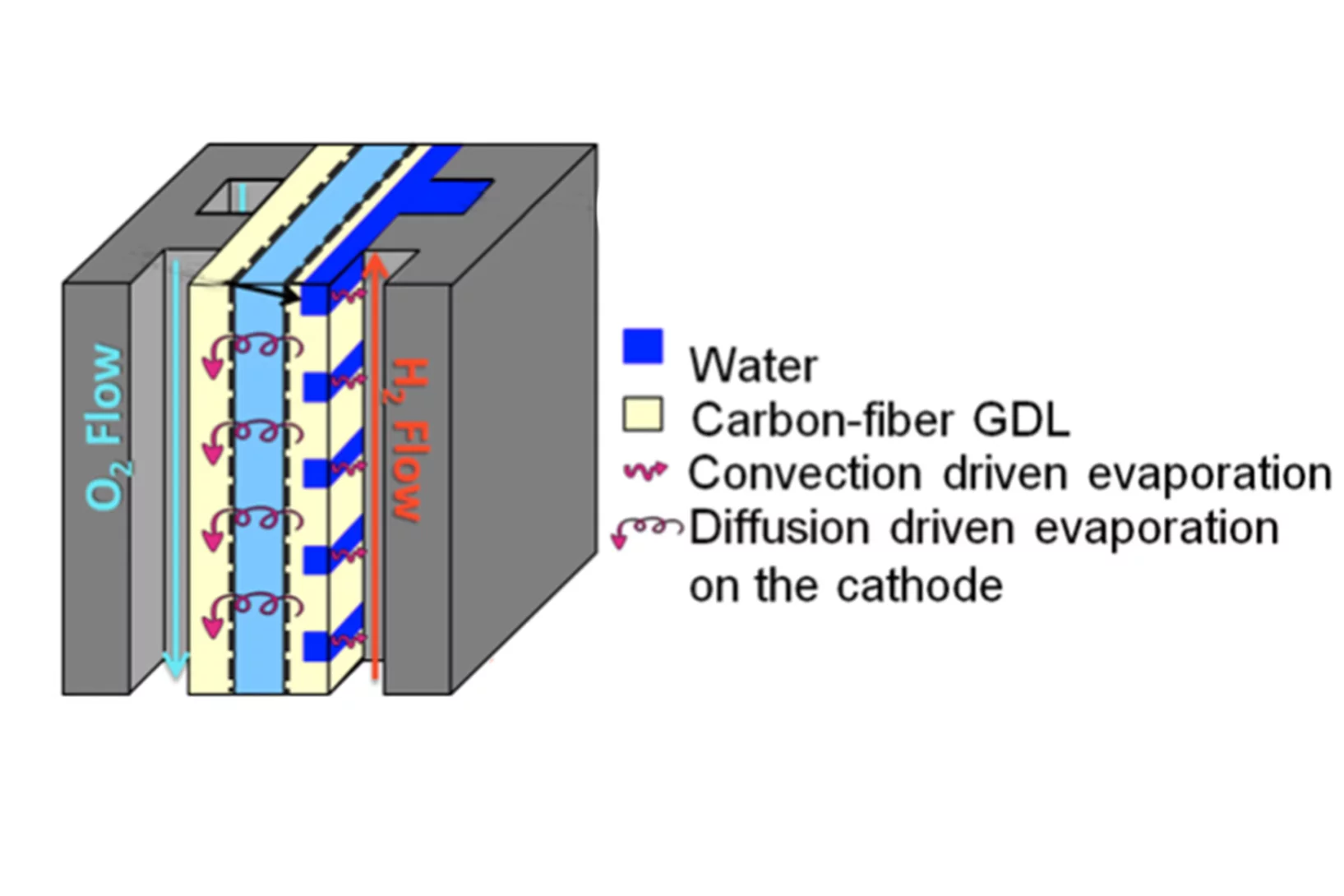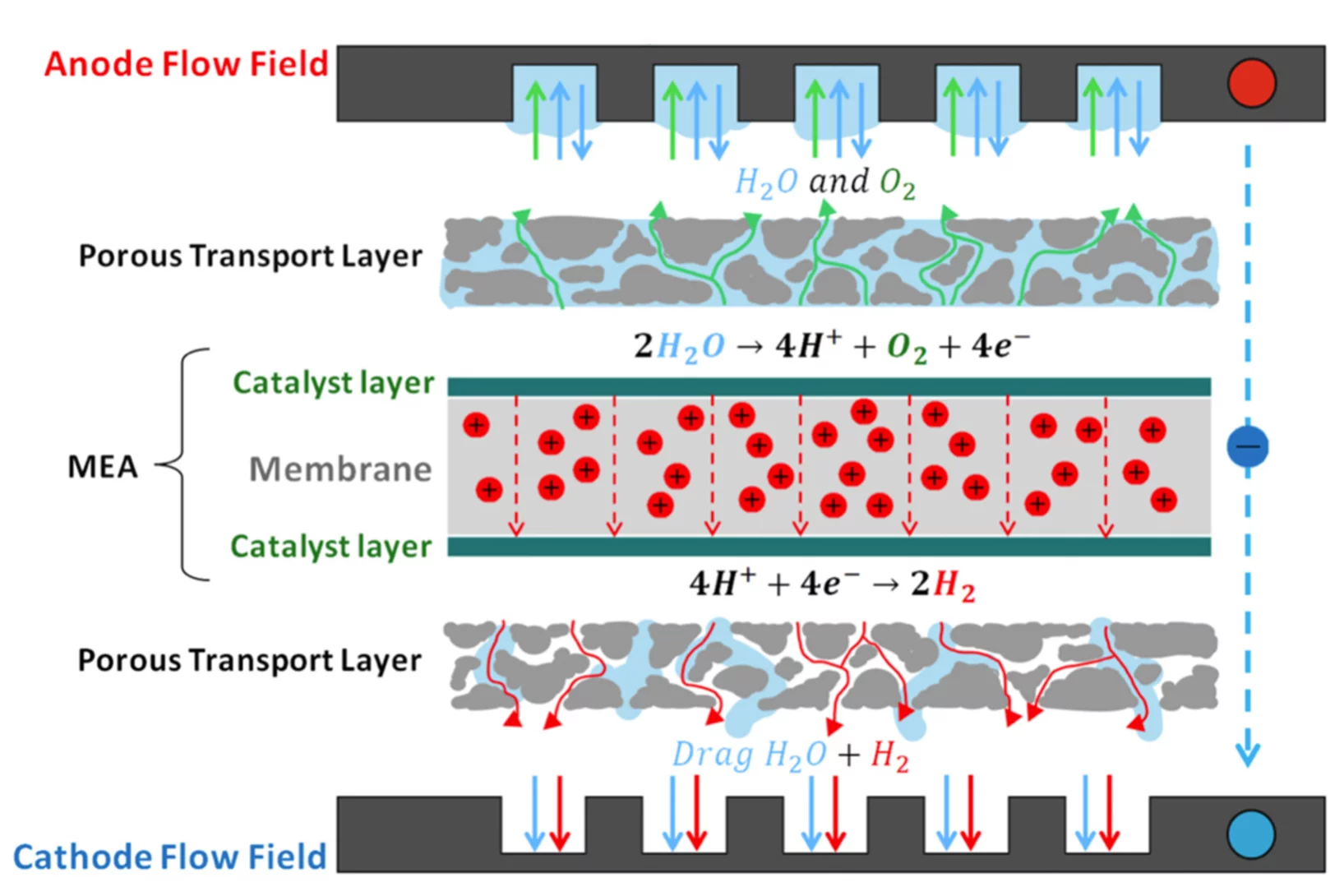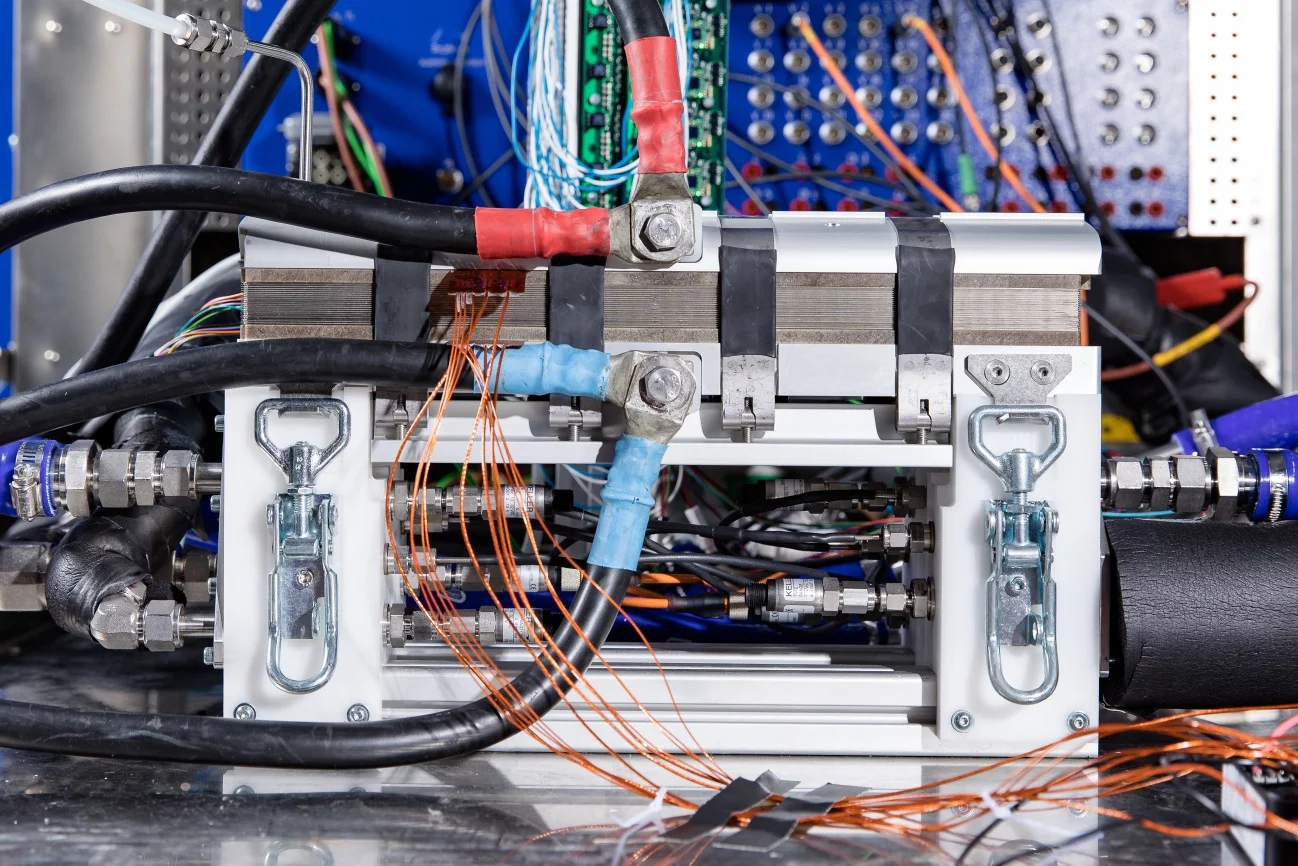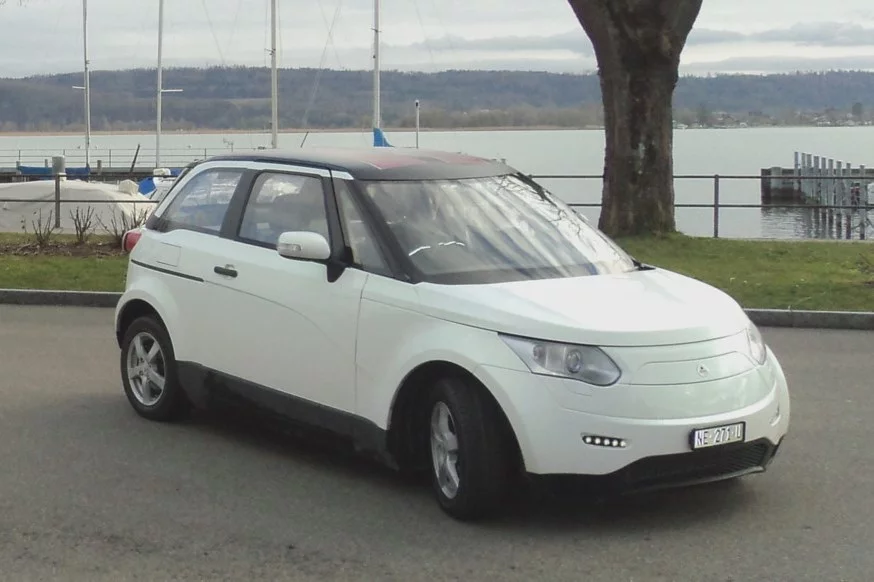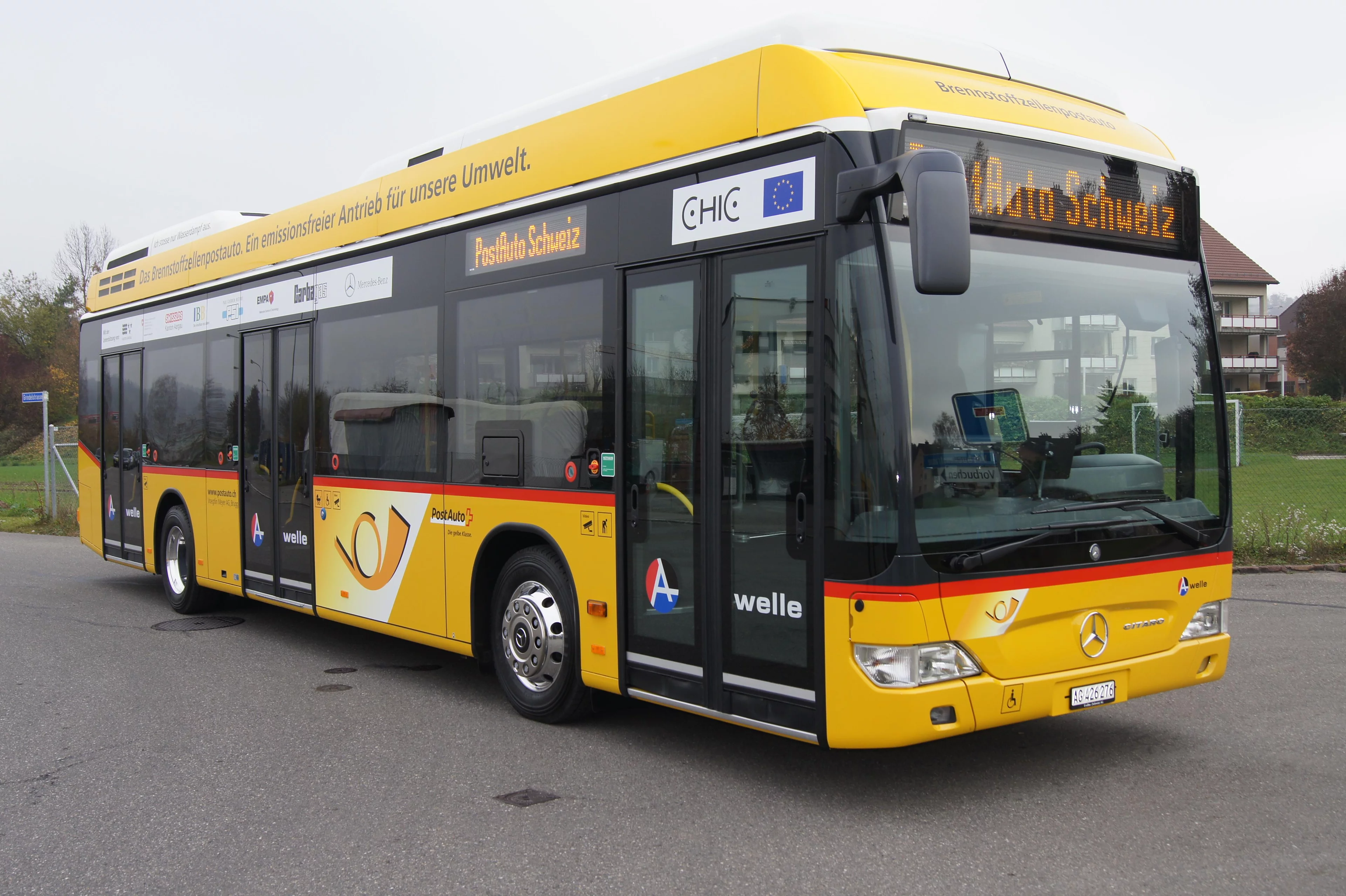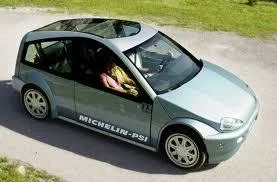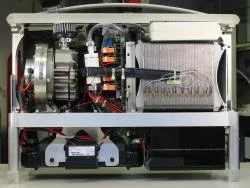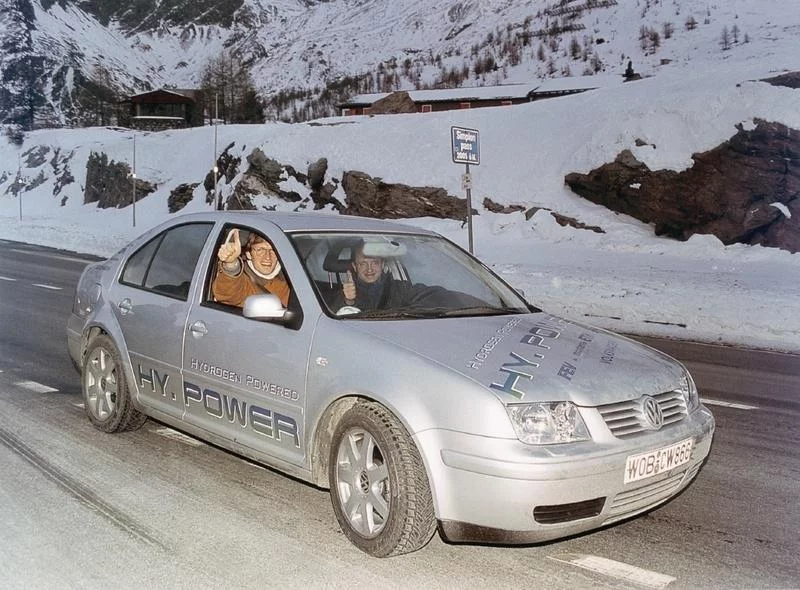In collaboration with industrial partners the group is providing technology support for fuel cell stacks and systems and developing proof-of-technology demonstrators. Focus today is on stationary hydrogen/(pure) oxygen systems and evaporative cooling. Current and past projects are briefly described below.
Project ESI
The Energy-System-Integration-Platform ESI ESI Platform investigates storage of (excess) renewable energy into chemical energy such as hydrogen and synthetic natural gas. Different energy conversion systems are integrated on a platform located at the PSI East area. The fuel cell systems and diagnostics group (FCSD) being responsible for the hydrogen path consisting of an electrolyzer, a gas purification plant, hydrogen and oxygen gas tanks and a fuel cell system for reconversion to electric power, jointly developed with Swiss Hydrogen. Swiss Hydrogen
E-Sling H2 Project
E-Sling is a ETH Fokus-Project giving students the chance for applied field experience. The aim is to develop new airplane drives and integrate them into a Sling TSi four-seat single engine aircraft. The project investigates two concepts of electric drives powered either by a hydrogen fuel cell system or by batteries (airplane as shown in image).
Within the frame of an academic partnership the first prototype of the hydrogen fuel cell system was successfully tested on the fuel cell test facility of PSI’s ESI Platform. The next steps in the project are building up its test facility and further optimization of the fuel cell system.
Autostack CORE
Autostack-CORE is a European JTI-FCH joint project developing PE fuel cell stack technology for the automotive industry. The objectives of this project are to meet the target costs while maintaining high energy density and performance. A consortium of 14 partners from industry and research was involved, with PSI being responsible for characterization performance and durability tests of short-stacks.
Belenos Fuel Cell Car
In collaboration with Belenos Clean Power Holding Belenos Clean Power AG, two generations of drive trains for lightweight cars were developed. This activity has received the Watt d'Or award in Watt d'Or award in 2011.
Post Bus
Hy.Muve Road Sweeper
hy.muve stands for "hydrogen-driven municipal vehicle". It is a joint project between EMPA, PSI, CCEM, Bucher Schörling, BRUSA, Messer and others. A prototype of a compact road sweeper CityCat propelled with a fuel cell system is developed tested. The vehicle is currently evaluated in different Swiss cities under real live conditions. More information can be found here.
Hy.Light Car
Pac Car II
This is a ETHZ project developing a vehicle PAC-Car II. The fuel cell stack was provided by PSI. Using hydrogen as the fuel, PAC-Car II covers a distance of 5385 km with the energy contained in 1l of gasoline.This is the current record of minimum consumption at the shell eco-marathon.
PowerPac
A new stack generation for mobile systems in the kW-range with innovative features such as internal gas humidification has been developed and characterized in collaboration with ETHZ and industrial partners. The applicability was demonstrated in the portable system PowerPac.
VW Bora
The 30 kW fuel cell powered VW Bora was created 1998. The system was realized in a collaboration of Volkswagen, PSI and ETH Zürich.

